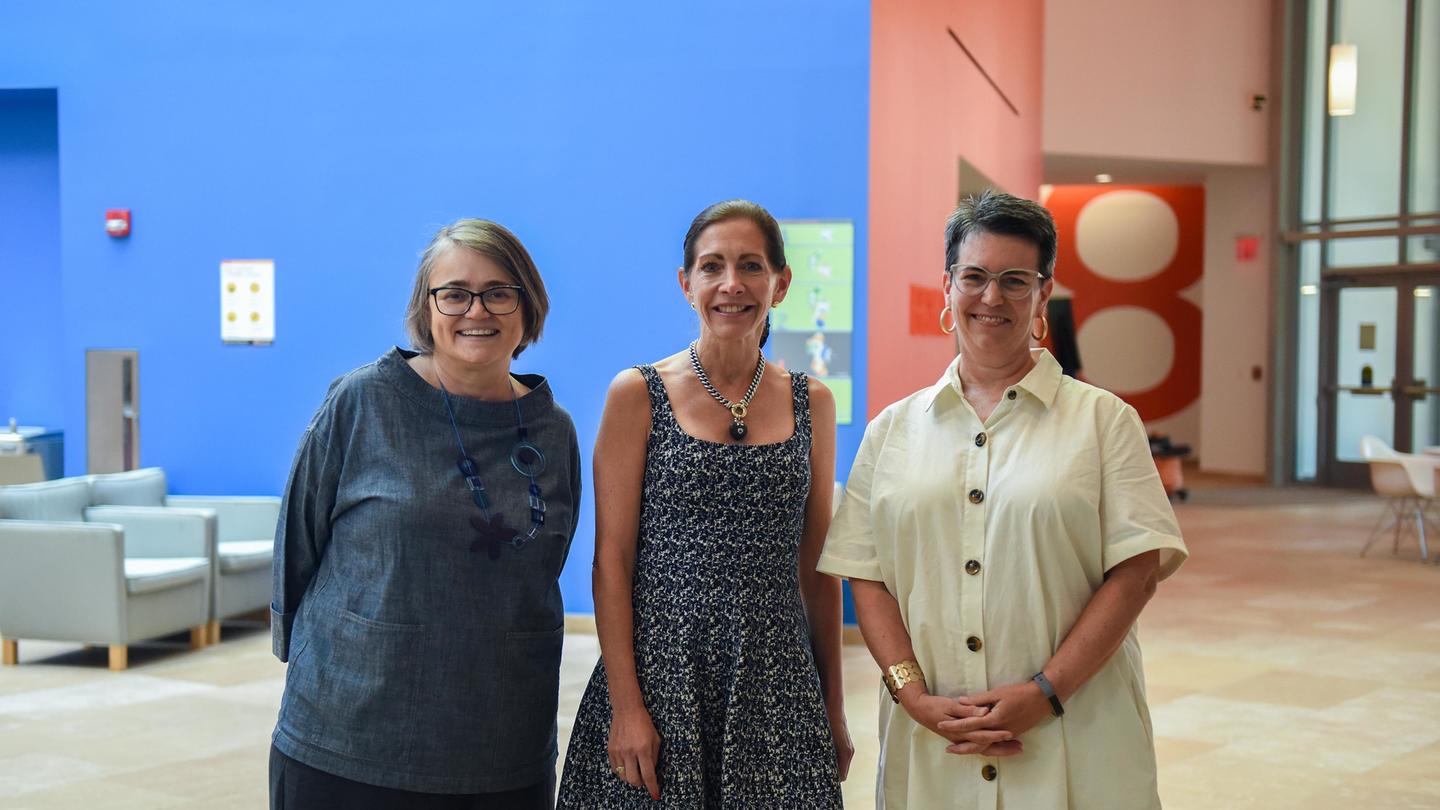The Princeton Pulse Podcast Spreads SPIA Research to 65 Countries

It was a stroke of luck that Aimee Bronfeld decided to be very early to her first day on the job five years ago.
As project specialist for the Center for Health and Wellbeing (CHW) at the Princeton School of Public and International Affairs (Princeton SPIA), she produces one of the University’s most successful podcasts, and it all began that morning when she bumped into Heather Howard.
“She was the first person I ran into, and the very first thing she asked was, ‘You know anything about podcasting?’” Bronfeld recalls. Bronfeld had never produced one, but no matter. As she put it, “Heather’s enthusiasm was contagious.”
Howard, a professor of the practice and Co-Director of CHW’s Global Health Program, is an avid podcast listener, and she had been contemplating how to moderate conversations between health researchers and policymakers in a way that helps both learn from each other. A former health official with deep policy experience, Howard joined the faculty in 2011(external link) after a career at the federal and state levels.
“From that first day, what we were thinking about is, how do we communicate to both policy audiences and academic communities? How do we bridge the two? That’s what CHW is all about,” Howard said.
The result has been a wild success. The Princeton Pulse Podcast(external link) has been downloaded more than 3,000 times in 65 countries since it launched two years ago. It has tackled some of the most challenging public health topics of the day, including gun violence, the opioid crisis, and vaccine hesitancy, advancing health research and policy by bridging the gap between the two and highlighting how they are connected.
The inaugural episode, in which New Jersey’s first lady, Tammy Murphy, discusses the racial divide in maternal-infant deaths, still sees fresh downloads to this day.
What makes the podcast such a riveting listen is that Howard and Bronfeld carefully choose topics that relate to what’s being discussed in the news while drawing on the expertise and research of Princeton faculty.
“When we can marry the two, that’s the best,” Bronfeld said. “The episodes that get the most interest are the ones that have to do with issues on people’s minds.”
An episode on soda taxes compared policies in Philadelphia to those in South Africa, two places that don’t immediately seem connected. Yet the conversation explored how soda taxes are inherently regressive in their design, placing a greater burden on low-income people in both places, but can be progressive in their application, promoting health equity by reducing soda consumption and improving health outcomes.
“I really enjoyed that episode – and use it in my global health classes – because it was a chance to draw comparative lessons and elevate what might otherwise be a dry discussion about the structure of taxes into a dynamic conversation about how to design equitable policy interventions to address rising obesity rates,” Howard said.
As the host, Howard also makes the conversation approachable so that it appeals to listeners beyond academia and policy circles. Episodes usually follow a format that brings a policymaker together with a scholar. Howard listens attentively and tries to guide the conversation towards common ground between the guests.
“It’s like the skill of moderating, which I now do a lot of as an academic,” Howard said. “You need to have a roadmap but not stick too much to it, because you’ve got to see where the two guests find each other interesting.”
Despite Howard’s expertise in public health, not all the topics they cover on the podcast are familiar territory for her. In a recent episode on AI in healthcare, she felt challenged by the technical nature of the topic, but she also saw that as an opportunity to empathize with the listener and present the research in an interesting way.
That episode also resulted in the two guests – Princeton Engineering Professor Niraj Jha and U.S. Rep. David Schweikert of Arizona – exchanging contact information. From the onset, Howard and Bronfeld set out to drive conversation and connection between researchers and policymakers. For them, a marker of the podcast’s success will be seeing more partnerships emerge.
“In our view, the podcast’s success is less about how many people are listening, but why they are listening. Our goal is to deepen understanding of global health issues and ultimately to inspire progress,” Bronfeld said. “I don’t think there would be anything more exciting to me and Heather than to know that some new policy or research emerged from a collaboration that we helped to facilitate, in some small way.”
If The Princeton Pulse inspires you to consider podcasting, Howard cautions not to approach it too lightly. Neither she nor Bronfeld realized how much work would go into producing it.
Before they started, they spoke to other campus communicators with podcasts to learn the ins and outs. It took many months to develop the concept, establish a format, and get the technical components in place. The Broadcast Center on campus does the technical editing, but there is still significant pre- and post-work that needs to fit in with their other responsibilities.
Still, they say that The Princeton Pulse is a valuable endeavor, and it has become a key way that CHW is telling its story to the world.
“When done well, it’s a really important new way to convey research and policy, to show our students how research informs policy, and to show policymakers why they should care about research,” Howard said.
